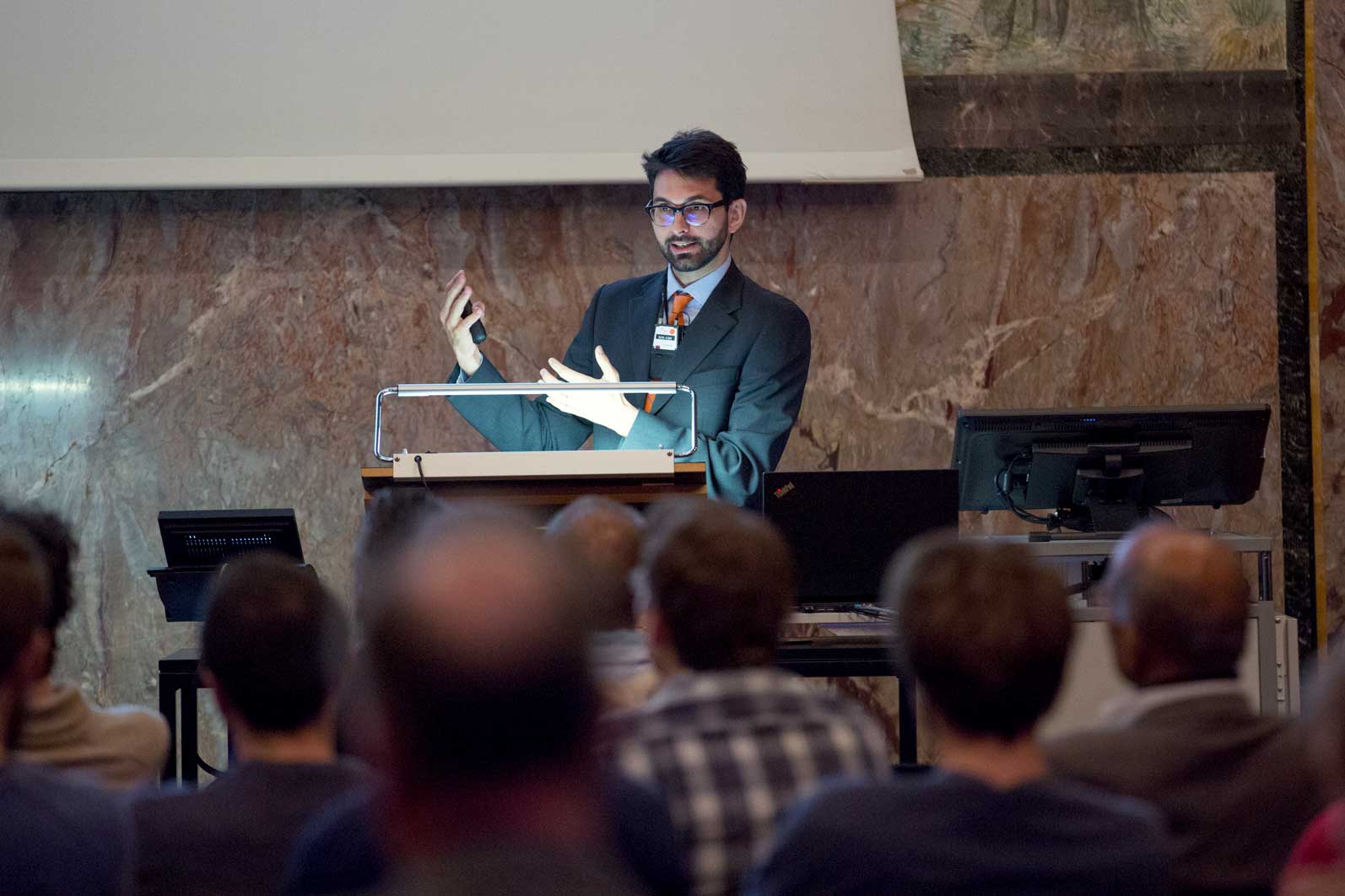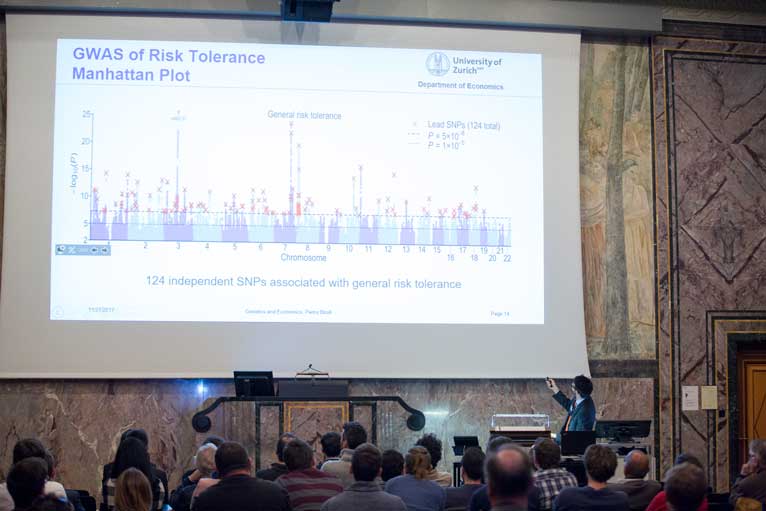Genetics and economics
Intro

Pietro Biroli is a microeconomist, interested in the early origins and the life cycle evolution of health and human capital. His research aims at understanding the mechanisms through which effective interventions and optimal choices of investment can help promote human development. He was appointed to the Assistant Professorship of Microeconomics, endowed by the UBS Center, in 2015.
In his inaugural lecture, Professor Biroli explained that genes and environment are inextricably intertwined. The lecture took place in the main auditorium of the University of Zurich and was open to the public.
Pietro Biroli is a microeconomist, interested in the early origins and the life cycle evolution of health and human capital. His research aims at understanding the mechanisms through which effective interventions and optimal choices of investment can help promote human development. He was appointed to the Assistant Professorship of Microeconomics, endowed by the UBS Center, in 2015.
In his inaugural lecture, Professor Biroli explained that genes and environment are inextricably intertwined. The lecture took place in the main auditorium of the University of Zurich and was open to the public.

Speakers
Pietro Biroli obtained his PhD in economics from the University of Chicago in 2015. Pietro’s research focuses on the early origins and life cycle evolution of health and human capital. Specifically, he explores the importance of genetics, family investment, and childhood interventions in explaining socioeconomic inequality. He has investigated how mothers’ empowerment and children’s human capital can be shaped by attending high-quality early childhood education, or providing psychotherapy to perinatally depressed mothers. In other work, he has investigated the molecular genetic architecture of risk aversion, and integrated insights from human genetics into an economic model of gene-environment interaction in the formation of health and human capital. With his work, Pietro aims to understand the mechanisms through which effective policy interventions and optimal choices of investment can help mitigate innate inequalities and promote health and human capital development.
Pietro Biroli obtained his PhD in economics from the University of Chicago in 2015. Pietro’s research focuses on the early origins and life cycle evolution of health and human capital. Specifically, he explores the importance of genetics, family investment, and childhood interventions in explaining socioeconomic inequality. He has investigated how mothers’ empowerment and children’s human capital can be shaped by attending high-quality early childhood education, or providing psychotherapy to perinatally depressed mothers. In other work, he has investigated the molecular genetic architecture of risk aversion, and integrated insights from human genetics into an economic model of gene-environment interaction in the formation of health and human capital. With his work, Pietro aims to understand the mechanisms through which effective policy interventions and optimal choices of investment can help mitigate innate inequalities and promote health and human capital development.